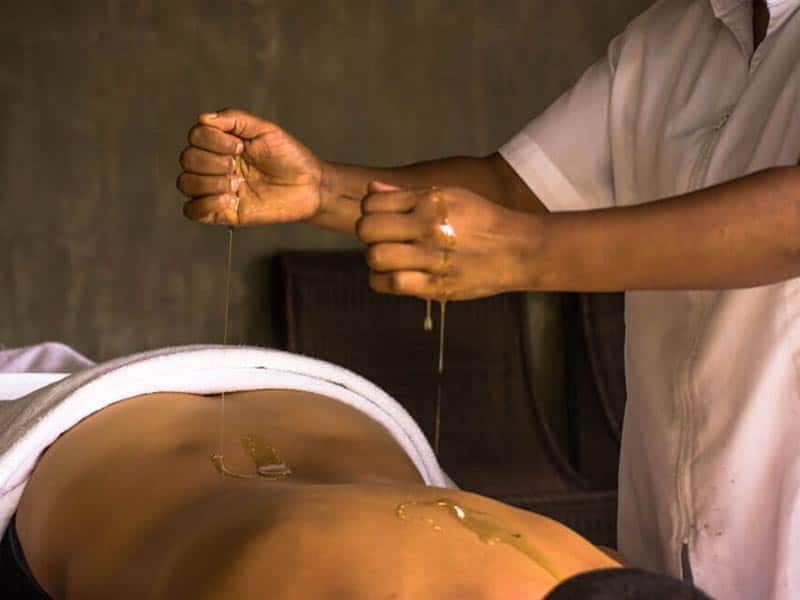In the practice of Ayurveda, stress is considered to be a causative factor for several diseases, causing ‘ojakshaya’ which is immunity deficiency, increasing the susceptibility of the body to various diseases. The question that arises is how then do we deal with stress? But before we look at the numerous Ayurvedic methods that can be used to alleviate stress, let’s look at how what Ayurveda is actually about.
What is Ayurveda?
Ayurvedic medicine is one of the world’s oldest holistic healing systems. It was developed more than 3,000 years ago in India and has now been adopted by various cultures across the world. It is based on the belief that health and wellness are dependent on the balance between the mind, body and spirit. The aim of Ayurveda is to promote a healthy wellbeing rather than to specifically counter diseases. Although treatments have now been developed towards solving specific health problems, the foundation of Ayurveda is about the prevention of such health issues.
In Ayurveda stress is known as sahasa and is viewed as a disturbance of the nervous system. According to Ayurveda the best way to reduce stress is by avoiding the root cause of your stress. However, if this is not possible, there are many Ayurvedic treatments that aim to help. Saliya Amarathunga, head of wellness at Santani Resort and Spa, mentions that an Ayurvedic approach to stress ‘pacifies the vitiated dosha and increases the coping capacity of the body through yoga and meditation, dietary interventions, drug treatment and rejuvenating therapies’. These rejuvenating therapies use natural and herbal ingredients to alleviate stress through methods that are not seen in conventional medicinal practices. Some of these rejuvenating therapies include Shirodhara, Pizhichil and Nasya.
Shirodhara
Shirodhara comes from the two Sanskrit words ‘shiro’ (head) and ‘dhara’ (flow). This is an Ayurvedic healing technique that is designed to deeply soothe the nervous system and quieten the mind. One of the biggest benefits of this treatment is that it counteracts the effects of stress and reduces anxiety. This treatment begins with a herbal and oil head, body or scalp massage followed by a steady stream of warm oil, milk or water being continually poured over the forehead and scalp. Thakradhara (thakra- buttermilk) is a subdivision of Shirodhara which involves the pouring of medicated buttermilk over the forehead as buttermilk has cooling properties and will help calm the body and mind.
Pizhichil
Pizhichil, renowned for its reliability in neurological disorders, is one of the traditional favorites among Ayurvedic therapies. In this treatment, lukewarm herbal oils are applied all over the body by trained therapists in a specific rhythmic way continuously for 60 to 90 minutes for a period of 21 days. Pizhichil means ‘to squeeze’ as the medicated oil is squeezed out from the cloth onto the client’s body. This is then followed by a rejuvenating massage, enhancing blood circulation and releasing toxins from the body. As you can imagine this treatment not only increases circulation and metabolism, thus restoring health and rejuvenating the body, but it also relieves stress by promoting relaxation of the body.
Nasya
This treatment is an ancient ayurvedic nasal treatment that combines a head, neck and shoulder massage with organic aromatherapy products and the application of warmed herbal oil to the nasal cavity. In Ayurveda, the nose is considered to be the door to consciousness and the pathway to our inner pharmacy. Therefore, medications that are administered via the nasal passages are believed to affect the mind. There are many different types of Nasya treatment that are elaborated in detail here. Nasya is mainly used to alleviate stress and relieve headaches, migraines and stiffness in the shoulders and neck.
If you are someone who experiences intense stress quite often, you might have tried many different methods to relieve this. However, if it has not proved to be effective, do try an Ayurvedic approach to manage your stress. Book a few days for a stress management retreat that utilizes Ayurvedic treatments and reap the benefits Ayurveda can have on your body and mind.


